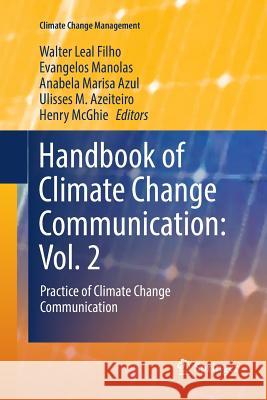Handbook of Climate Change Communication: Vol. 2: Practice of Climate Change Communication » książka
topmenu
Handbook of Climate Change Communication: Vol. 2: Practice of Climate Change Communication
ISBN-13: 9783319888859 / Angielski / Miękka / 2018 / 419 str.
Kategorie:
Kategorie BISAC:
Wydawca:
Springer
Seria wydawnicza:
Język:
Angielski
ISBN-13:
9783319888859
Rok wydania:
2018
Wydanie:
Softcover Repri
Ilość stron:
419
Waga:
0.61 kg
Wymiary:
23.39 x 15.6 x 2.26
Oprawa:
Miękka
Wolumenów:
01
Dodatkowe informacje:
Wydanie ilustrowane











